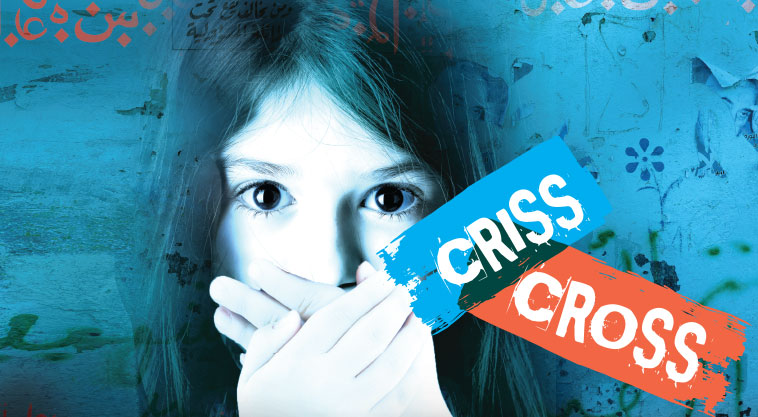Crisscross: Chapter 33


As I hear the judge defending a biological father’s inherent right to the custody of his child my world turns black. Abba’s lips are barely moving as he recites Tehillim. I twist around to see the witness stand. Musa Elkaradi is smiling broadly, his expression relaxed and confident. A group of Arab spectators on his side are murmuring and stealing glances in my direction. I feel sick.
My father squeezes my hand. “It’s not over yet!” he whispers, to encourage me. “Now is the time to turn your heart to our real Father, whose love for us is greater than we can imagine.”
I close my eyes to shut out the courtroom and all the people. I take slow deep breaths, like Ima taught me, until the sounds around us recede into the distance. And then I pray with all my heart and all my soul. I thank Hashem for all the good He has given me, and especially for my Abba and Ima. I promise bli neder to become a tzaddik no matter how hard it is. I’ll add hours to my learning schedule, I’ll help weaker students even when it’s inconvenient, I’ll keep my eyes open for opportunities to encourage others, I’ll help my mother with housework and shopping, I’ll do the speech therapist’s exercises with Yael, I’ll never complain about anything ever again….
“Meir!” Abba’s voice shatters my concentration. I blink and look around in confusion. “Meir,” he whispers, “It’s your turn to speak. Go to the stand.”
I don’t know how I manage to stand up and walk over to the microphone. My knees are shaking and my heart is pounding. I step up onto the podium and hold on tightly to the edge of the lectern. Our lawyer has prepared me for this stage. We practiced it several times so I already know the questions he’s going to ask and I’ve memorized the answers. I try to remember to speak clearly.
Now the judge is addressing me. “How long have you known that you are adopted?” she asks.
“I’ve always known,” I tell her. “It was never kept a secret from me.”
She asks more questions, some of which seem totally irrelevant, like which sports I play, which clubs to I belong to, and whether I play any musical instruments. Our lawyer frowns. This judge obviously is totally unfamiliar with life in a frum family.
“What do you do in your spare time?” she asks me.
I explain that I am in cheder from 8 a.m. until 5 p.m. and then I go to shul for my father’s shiur and to daven Maariv, so there’s not a lot of free time except on Shabbos. Her expression shows disapproval. I shake my head, unprepared for such ignorance.
“Which are your favorite television programs?” she continues. “What was the last movie you went to?” I flush and stammer an evasive kind of answer. My eyes search for my father’s face and we lock eyes. His appreciation for what I’m going through shows in his expression. I lick my lips and stand straighter.
I turn to face the judge. “Your honor?” I’m surprised that my voice doesn’t shake.
“Yes?”
“May I please say a few words?”
She nods her agreement. Hashem, help me!
(Excerpted from Mishpacha Jr., Issue 722)
Oops! We could not locate your form.


